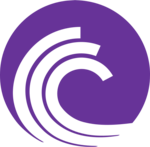Exalted Protocols
RSS
RSS, or Really Simple Syndication, is a protocol that provides the ability to "subscribe" to websites through RSS feeds. RSS feeds can be read by any client following the protocol, referred to as RSS clients & allows for a standardized way to view & follow website updates without any content filtering.
Visit the Yarr WebsiteBitTorrent
BitTorrent is a peer-to-peer file sharing protocol, meaning anyone can share their files & make them downloadable
through a link or a torrent file. Anyone downloading the file can also help support others trying to download it,
which makes it support high speed distributed downloads.
This makes the technology highly censor resistant & requires no third-party server to host the files being shared
or for the files to have a single point of access, vulnerable to takedown or service denial attacks.
IRC
IRC, or Internet Relay Chat, is a chat protocol that has been around since the 80s, mostly used for
group-chats, but does also support one-to-one chatting & file sharing.
The protocol is great for discussions & group communication, having a decentralized nature. IRC also
has an underground feel, with rabbit holes, making you feel like Alice, & imbues the hacker ethos.
XMPP
XMPP, or Extensible Messaging & Presence Protocol, is a decentralized protocol most often compared to email,
by being the messaging equivalent standard. It's like a lot of internet protocols, being used in the background
of modern proprietary software, but it is a highly flexible & powerful protocol, with a dedicated community.
It's not without flaws, being without feature-complete & modern cross-platform clients, making it difficult to adapt to
by non-technical people easily. But it offers a solution to the dangerously centralized nature of the internet of today.
| Name | Android | iOS | Linux | Windows | macOS |
|---|---|---|---|---|---|
| blabber.im | Yes | No | No | No | No |
| Conversations | Yes | No | No | No | No |
| Snikket | Yes | Yes | No | No | No |
| Siskin IM | No | Yes | No | No | No |
| Beagle IM | No | No | No | No | Yes |
| Dino | No | No | Yes | No | No |
| Gajim | No | No | Yes | Yes | No |
| Profanity — Console | No | No | Yes | Yes | Yes |
| Converse — Browser | No | No | Yes | Yes | Yes |







